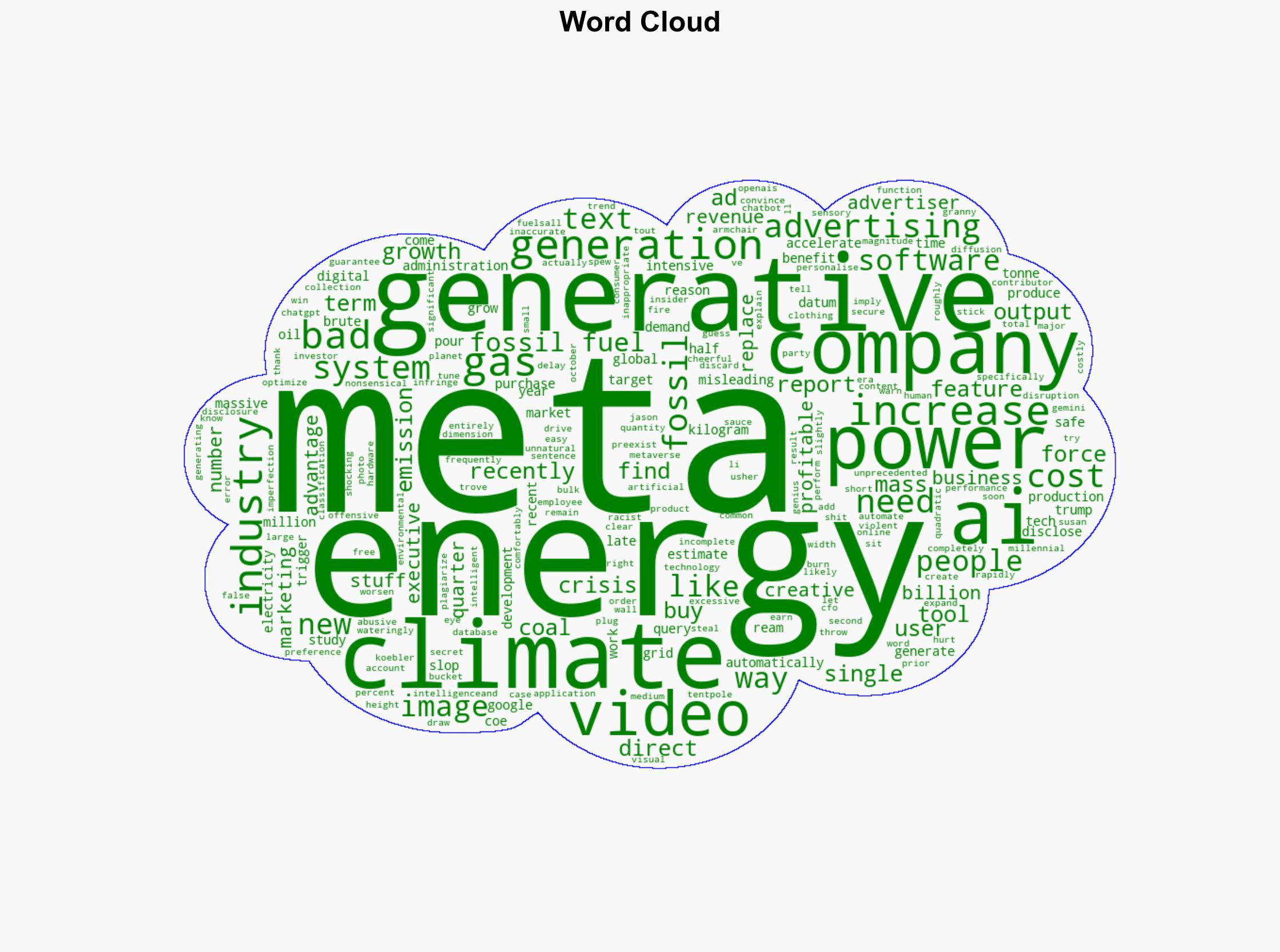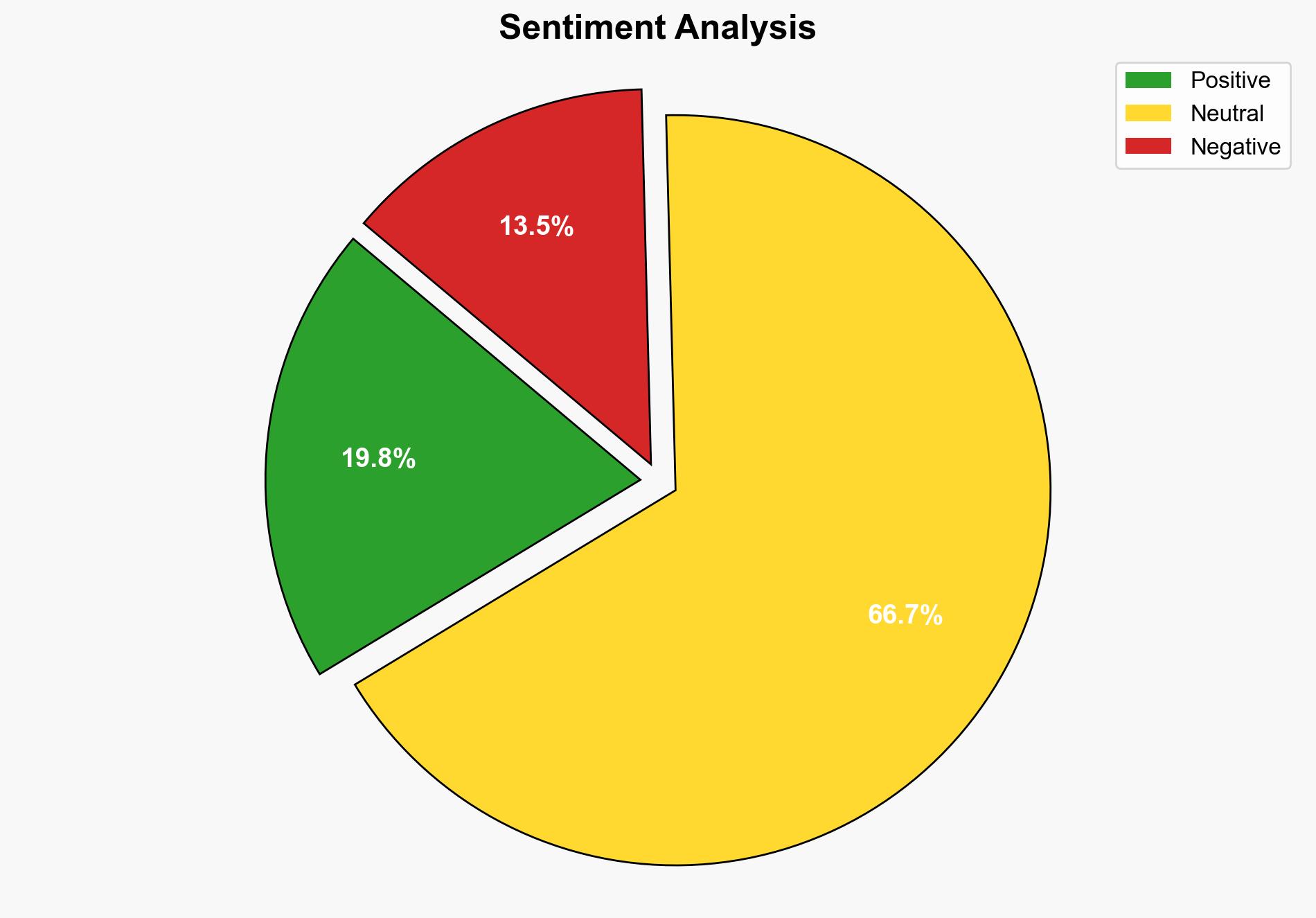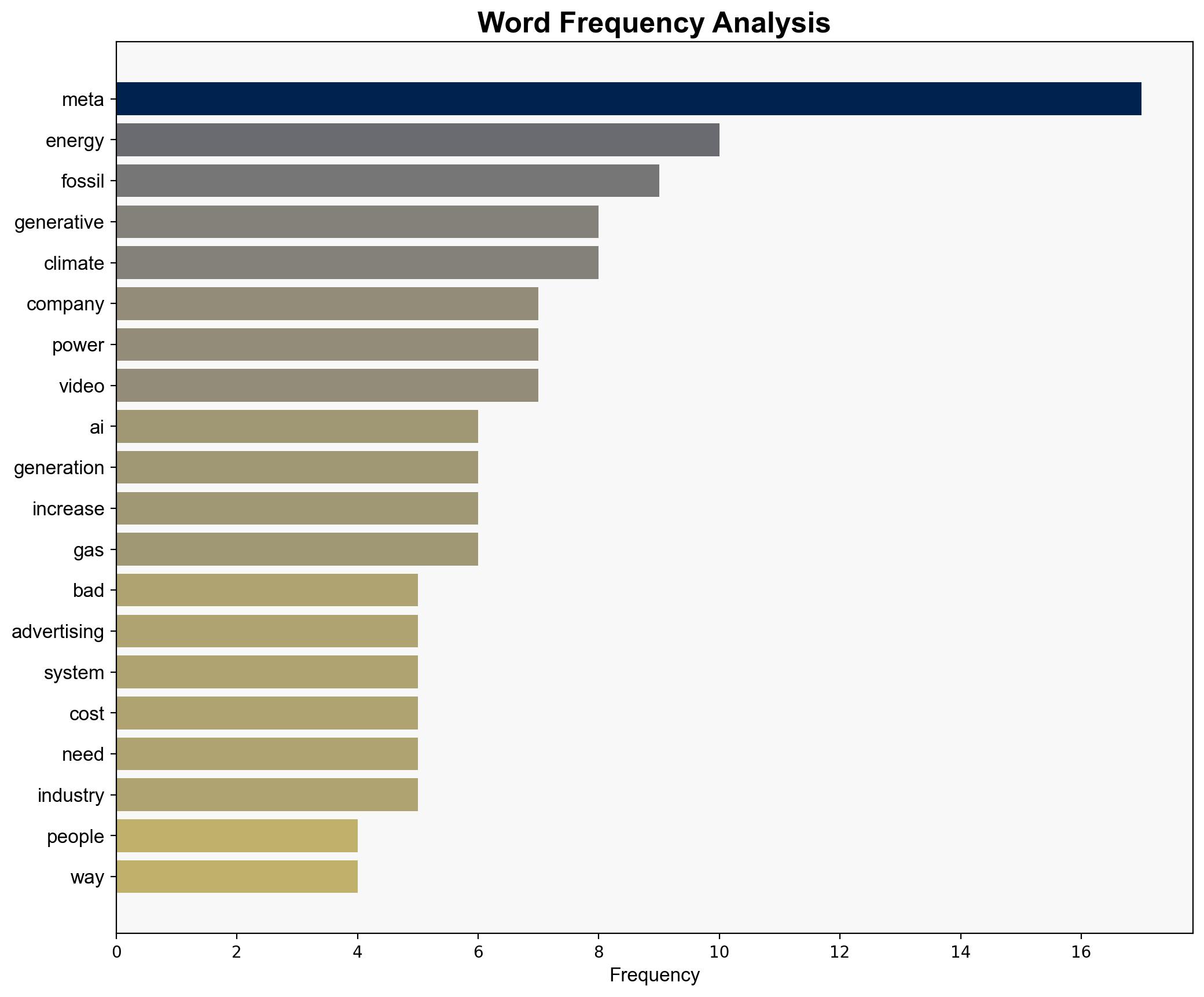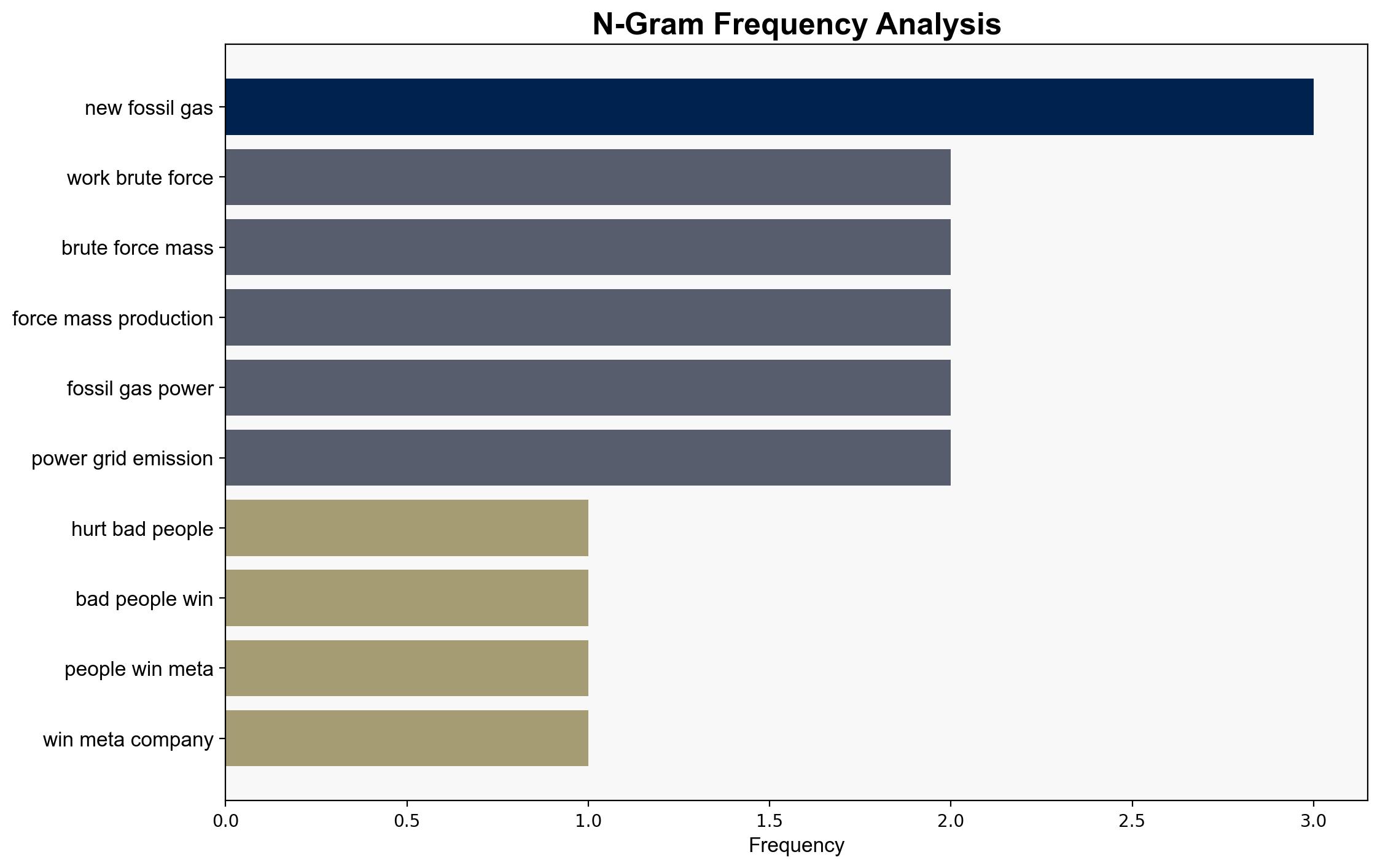Artificial Intelligence Wants to Sell You Stuff While the World Burns – The New Republic
Published on: 2025-11-11
AI-powered OSINT brief from verified open sources. Automated NLP signal extraction with human verification. See our Methodology and Why WorldWideWatchers.
Intelligence Report: Artificial Intelligence Wants to Sell You Stuff While the World Burns – The New Republic
1. BLUF (Bottom Line Up Front)
The strategic judgment is that Meta’s reliance on AI-driven advertising, while profitable, poses significant environmental and ethical risks. The most supported hypothesis is that Meta’s AI advertising strategy will exacerbate environmental degradation and ethical concerns, potentially leading to regulatory scrutiny. Confidence level: Moderate. Recommended action: Monitor regulatory developments and advocate for transparent AI energy usage disclosures.
2. Competing Hypotheses
Hypothesis 1: Meta’s AI-driven advertising will continue to be highly profitable, with limited regulatory or public backlash due to its economic benefits.
Hypothesis 2: Meta’s AI-driven advertising will face increasing regulatory scrutiny and public backlash due to its environmental impact and ethical concerns, potentially affecting profitability.
The second hypothesis is more likely due to growing global awareness of climate change and ethical AI use, alongside increasing regulatory actions in tech industries.
3. Key Assumptions and Red Flags
Assumptions: AI-driven advertising will remain profitable; regulatory bodies will prioritize environmental and ethical considerations.
Red Flags: Lack of transparency in AI energy usage; potential underreporting of AI’s environmental impact.
Deception Indicators: Overemphasis on profitability without addressing environmental costs; potential greenwashing in corporate communications.
4. Implications and Strategic Risks
Political: Potential for increased regulatory actions targeting AI energy consumption and ethical use.
Cyber: Risks of AI systems being manipulated to produce misleading or harmful content.
Economic: Possible financial penalties or restrictions impacting Meta’s profitability.
Informational: Public backlash could damage Meta’s brand reputation and consumer trust.
5. Recommendations and Outlook
- Monitor regulatory developments related to AI and environmental impact.
- Advocate for transparent reporting of AI energy usage and environmental impact.
- Engage in public discourse to address ethical concerns and promote responsible AI use.
- Best Scenario: Meta adapts to regulatory changes, maintaining profitability while reducing environmental impact.
- Worst Scenario: Regulatory actions severely restrict AI advertising, significantly impacting Meta’s revenue.
- Most-likely Scenario: Meta faces moderate regulatory challenges but adapts to maintain profitability with some environmental concessions.
6. Key Individuals and Entities
Susan Li (Meta CFO), Jason Koebler (Reporter), Meta (Company)
7. Thematic Tags
Cybersecurity, Environmental Impact, AI Ethics, Regulatory Compliance
Structured Analytic Techniques Applied
- Adversarial Threat Simulation: Model and simulate actions of cyber adversaries to anticipate vulnerabilities and improve resilience.
- Indicators Development: Detect and monitor behavioral or technical anomalies across systems for early threat detection.
- Bayesian Scenario Modeling: Quantify uncertainty and predict cyberattack pathways using probabilistic inference.
Explore more:
Cybersecurity Briefs ·
Daily Summary ·
Methodology





